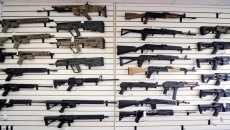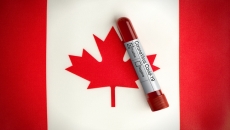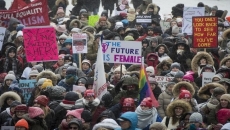Federal prison chaplains are stepping up a bid to negotiate their first collective agreement to secure better wages and working conditions.
The chaplains, who provide spiritual care to federal inmates across Canada, are applying to the government for conciliation to help reach an agreement.
The United Steelworkers union represents about 180 chaplains representing a variety of faiths and spiritual practices following a 2019 decision to unionize.
Negotiations for a deal began in February but chaplaincy services have since been curtailed due to concerns about the spread of COVID-19 in federal prisons.
As a result, chaplains have been forced to turn to government-assistance programs for income support.
The union says chaplains have not seen improvements to wages and working conditions since at least 2016.

.jpg)




